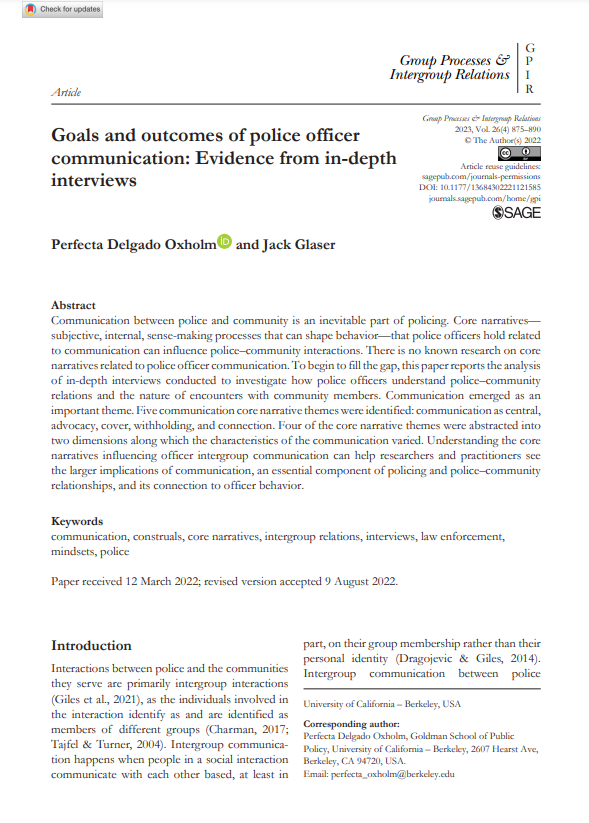Goals and outcomes of police officer communication: Evidence from in-depth interviews
By Perfecta Delgado Oxholm and Jack Glaser
Communication between police and community is an inevitable part of policing. Core narratives—subjective, internal, sense-making processes that can shape behavior—that police officers hold related to communication can influence police–community interactions. There is no known research on core narratives related to police officer communication. To begin to fill the gap, this paper reports the analysis of in-depth interviews conducted to investigate how police officers understand police–community relations and the nature of encounters with community members. Communication emerged as an important theme. Five communication core narrative themes were identified: communication as central, advocacy, cover, withholding, and connection. Four of the core narrative themes were abstracted into two dimensions along which the characteristics of the communication varied. Understanding the core narratives influencing officer intergroup communication can help researchers and practitioners see the larger implications of communication, an essential component of policing and police–community relationships, and its connection to officer behavior.
Group Processes & Intergroup Relations, 26(4), 875-890.


